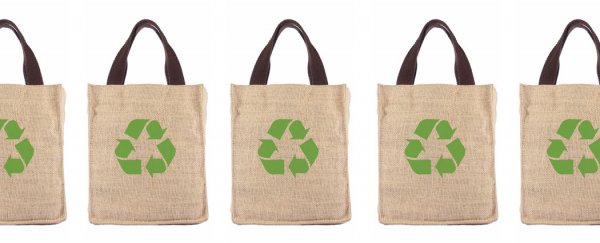Do you think you're doing the right thing by stringently insisting on only using environmentally friendly reusable shopping bags? Well, you are… but doing the right thing appears to come with all sorts of unintended consequences, according to new research that suggests bringing our own bags from home affects what we end up buying at the checkout.
A new study co-authored by teams from Harvard and Duke University in the US is among the first research to demonstrate that using our own eco-friendly shopping bags leads to significant changes in consumer behaviour - and those changes aren't all for the good, either.
While bringing our own bags from home encourages us in some positive ways, making us more likely to buy healthy food and environmentally conscious products like organic foods, it also has a rather personally detrimental side effect: we reward ourselves for our eco efforts by heading straight to the snack aisles. And those canvas bags are plenty capacious.
"[The] same shoppers often feel virtuous, because they are acting in an environmentally responsible way," say Uma Karmarkar and Bryan Bollinger, the co-authors of the study. "That feeling easily persuades them that, because they are being good to the environment, they should treat themselves to cookies or potato chips or some other product with lots of fat, salt, or sugar." Delicious irony, you might say!
The researchers collected their data from the purchase logs of loyalty card users at one of California's major grocery chains, and also recruited volunteers for shopping experiments in which participants were given one of two alternate instructions: either bring their reusable shopping bags from home, or just accept the plastic or paper ones supplied at the store.
The results showed shoppers bringing their own bags were more likely to purchase both organic foods and junk foods, with the indulgence of the latter appearing to be a subconscious reward for their 'ethical' behaviour. However, the purchase of organic and junk foods was lessened when shopping with children, with parents' personal preferences "diluted, or even overpowered, by a range of competing motivations arising from their role as parents".
So now that we know we're more likely to get our snack on when shopping with reuseable bags, what can we do about it? The research, published in the Journal of Marketing, doesn't have any inside tips for vulnerable ethical shoppers, but it does point to one winner in the overall situation.
"Our findings thus have important implications for grocery store managers," say Karmarkar and Bollinger. "In stores where reusable bags are popular, marketing organic or sustainably farmed foods as indulgences could increase the sales of those items."
